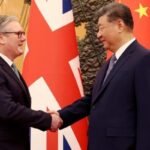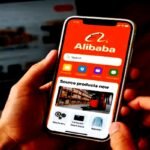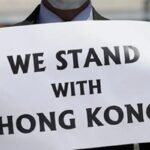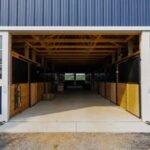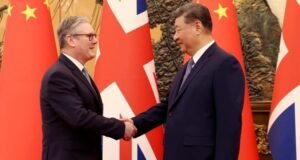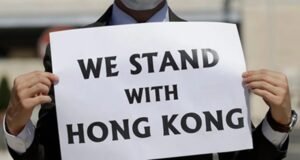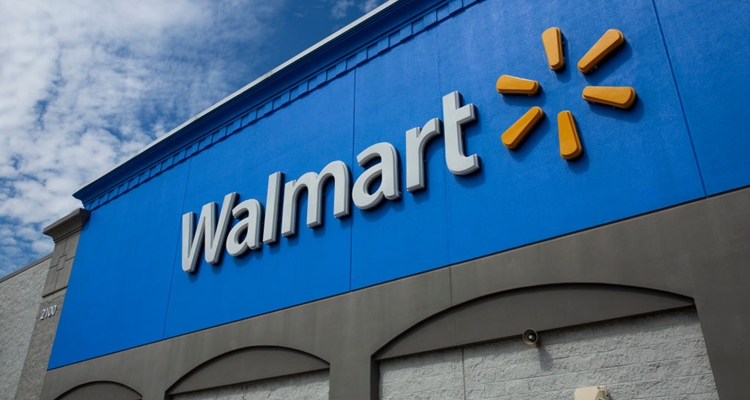
Blinkered obsession
“Mr. Trump remains fixated on tariffs. He doesn’t even seem to grasp the scale of the threat posed by China. Before the two countries’ announcement last Monday that they had agreed to slash trade tariffs, Mr. Trump dismissed concerns that his previous sky-high tariffs on Chinese goods would leave shelves empty in American stores….
“The enduring strength of a state-dominated Chinese system that can pivot, change policy and redirect resources at will in service of long-term national strength is now undeniable….
“Mr. Trump’s blinkered obsession with short-term Band-Aids like tariffs, while actively undermining what makes America strong, will only hasten the onset of a Chinese-dominated world.”
—“In the Future, China Will Be Dominant. The U.S. Will Be Irrelevant,” The New York Times, Kyle Chan, May 19, 2025
Investor caution
“ ‘Investors are likely cautious given how unpredictable Trump and his administration has behaved,’ said Han Piow Liew, a fund manager at Maitri Asset Management Pte, a family office based in Singapore. ‘Investors will have even more reasons to tame their bullishness on China, expecting more uncertain times as the geopolitical drama further unfolds.’ ”
—“Options Traders Wary of Trump Treat China Rally With Caution,” Bloomberg, David Marino and Sangmi Cha, May 18, 2025
Apple and India
“Last week, Trump’s tariffs on China dropped overnight—from 145% to 30%, vs 27% for India—as the two sides thrashed out an agreement in Switzerland.
“As a result, there’s a chance manufacturing investment that was moving from China to India could either ‘stall’ or ‘head back’, feels Ajay Srivastava of the Delhi-based think tank, Global Trade Research Institute (GTRI).
“ ‘India’s low-cost assembly lines may survive, but value-added growth is in danger.’…
“ ‘Slash production costs, fix logistics, and build regulatory certainty,’ Srivastava urged policymakers in a social media post…. ‘India must play the long game, or risk getting side-lined.’ ”
—“Apple boosts India’s factory hopes—but a US-China deal could derail plans,” BBC, Nikhil Inamdar, May 18, 2025
TSMC in Arizona
“Among the cactuses in the desert of Arizona, just outside Phoenix, an extraordinary collection of buildings is emerging that will shape the future of the global economy and the world….
“Eventually, it will mass produce the most advanced chips in the world. This work is being done in the US for the first time, with the Taiwanese company behind it pledging to spend billions more here in a move aimed at heading off the threat of tariffs on imported chips.
“It is, in my view, the most important factory in the world, and it’s being built by a company you may not have heard of: TSMC, Taiwan Semiconductor Manufacturing Company. It makes 90% of the world’s advanced semiconductors….
“The factory sits at the heart of US strategy to gain technological, AI and economic supremacy over China.
“Both the Biden and Trump administrations have developed policies to try to limit Chinese access to the frontier semiconductor technology—from a ban on exports to China of ASML’s machines, to new legislation to ban the use of Huawei AI chips in US software or technology anywhere in the world.
“Taiwan’s President Lai this week urged democracies such as Japan and the US to develop ‘non-Red’ supply chains to counter China.”
—“The secretive US factory that lays bare the contradiction in Trump’s America First plan,” BBC, Faisal Islam, May 18, 2025
Tasty tariffs
“Walmart warned on Thursday that everything from bananas to children’s car seats could increase in price….
“ ‘Walmart should STOP trying to blame Tariffs as the reason for raising prices throughout the chain,’ Trump posted. ‘Walmart made BILLIONS OF DOLLARS last year, far more than expected. Between Walmart and China they should, as is said, ‘EAT THE TARIFFS,’ and not charge valued customers ANYTHING. I’ll be watching, and so will your customers!!!’
“The posting by the Republican president reflected the increasingly awkward series of choices that many major American companies face as a result of his tariffs, from deteriorating sales to the possibility of incurring Trump’s wrath. Trump has similarly warned domestic automakers to not raise their prices, even though outside analyses say his tariffs would raise production costs.”
—“Trump warns Walmart: Don’t raise prices due to my tariffs but do eat the costs from those taxes,” Associated Press, Josh Boak, May 17, 2025
Achilles’ Heel
“For China, the lesson learned is that the Trump administration isn’t willing to ignore the domestic pressure applied by American businesses. Their supply chains are still dependent on China, which means that their Achilles Heel is inventory logistics. This realization will be factored into China’s negotiation framework and economic statecraft calculations. Going forward, even if the Chinese government does not resort to additional tariffs or export controls, it could use technical and administrative measures to delay shipments destined for U.S. markets….
“The current ninety-day pause will probably be extended as the two sides edge closer to a comprehensive deal, but a further reduction in tariff rates seems unlikely. Beijing can live with a differential rate on Chinese goods that is only 20 percent higher than the rest of the world. The Trump administration will likely shift its focus to consolidating its position within the Western trade bloc by striking deals with Europe and Japan. To get quick wins, the administration will trumpet revised frameworks with allies, but the typical trade deal of substance takes about 18 months to negotiate.
“In the meantime, Chinese small businesses—the backbone of Chinese exports—will not halt export to wait for the two governments reach a trade deal. They will continue to expand markets and manufacture facilities overseas in places where they can sell products for higher margins and further cut costs wherever possible.”
—“Trump’s China Truce on Tariffs Comes at Cost to U.S. Credibility,” Council on Foreign Relations, Zongyuan Zoe Liu, Date
Laser-focused on decoupling
“Shortly before the negotiations in Geneva, the United States announced a trade deal with the UK that contained little new movement and no change on tariffs. Still, it did include a near U.S. veto on Chinese investment in the UK. Beijing not only registered its displeasure with the new agreement but also went on to threaten other countries that engaged in similar arrangements.
“The Trump administration is pushing other countries to adopt similar policies. A major sticking point with Canada and Mexico is their lax policies on money laundering, transshipment, drug enforcement, and intelligence leaks that involve China. South Korea and Vietnam have stepped up enforcement of transshipment detection. This follows up on financial sanctions on countries that sell China-sanctioned oil, such as from Iran and Venezuela….
“So, away from the press releases touting Washington’s desire to make a deal with Beijing, the U.S. side appears laser-focused on decoupling from China.”
—“Breaking Down the US–China Trade Deal,” The Epoch Times, Christopher Balding, May 20, 2025
